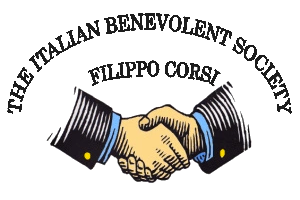Our History
The Italian Benevolent Society, Filippo Corsi was organized and founded by Giovanni Amicangioli, December 16, 1915 as “Circolo Italiano di Beneficenza, Filippo Corsi”.
Shortly after this date, the Circolo Italiano became associated with the Sons of Italy as “Loggia Filippo Corsi No. 562”. Then, in early 1920 changed the name again to “Societa di Mutuo Soccorsi Filipo Corsi” and finally on February 28, 1924 was incorporated under our present name, “The Italian Benevolent Society, Filippo Corsi”.
Giovanni Amicangioli, our founder in 1915 and our first president in 1924, was a family man with a great vision, and compassion for his fellow man. The early 1900’s were very difficult for Italian immigrants, they came to the United States in search of a better life, but in most cases they encountered discrimination, menial jobs, low wages, and no benefits.
John Amicangioli recognized the need for an organization that would assist its members and families in difficult periods, such as sickness, unemployment, or in case of death. The Circolo Italiano provided all of these needs.
John and the other co-founders named the new organization in honor of Filippo Corsi, a man who exemplified the same ideals and beliefs.
Filippo Corsi was born in 1869 in Sulmona of parents from Capestrano. He believed and fought for economic parity and democracy for all people. He battled for the rights of the working class, and through his newspaper “La Democrazia” he conducted a campaign against the totalitarian government and oppressors of justice. For this, he was arrested, condemned and forced into political exile.
Filippo Corsi returned from exile on May 3, 1903 having been elected to the House of Deputies in Parliament, by the people of Massa-Carrara. He was the first Democratic Representative to be elected to the Italian Parliament.
Filippo Corsi died later that same year (1903).
Today, “The Italian Benevolent Society, Filippo Corsi” continues in the same tradition and beliefs of our forefathers, with increased emphasis on social and cultural programs.
